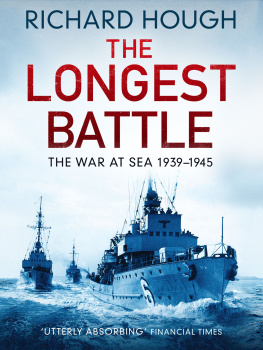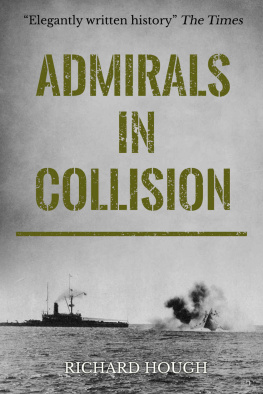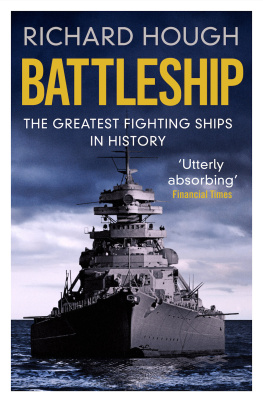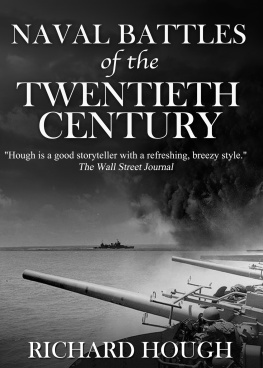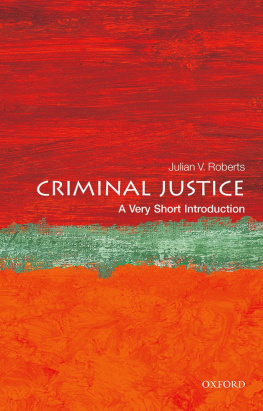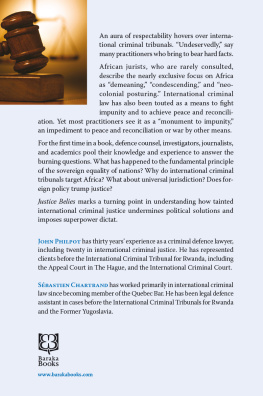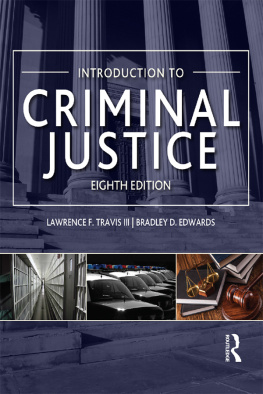
Recent events in the US and wider world have emphasized just how critical and controversial the use of force by state agents can be in a democracy and in the full glare of contemporary media. Few writers are as well-qualified or experienced as Richard Hough in analyzing these issues and setting them in context. One of the great merits of this highly readable and thoroughly researched book is that while readers might not always agree with all of his answers, it is abundantly clear that he is asking the right questions.
Peter Squires, Professor of Criminology & Public Policy, University of Brighton; President: British Society for Criminology 20152018
The breadth of Dr. Richard Houghs experience and his keen insights show in this unique text, which is a comprehensive examination/presentation of knowledge gained through both practical on-the-street practice and academic study of force. The work is infused with the human view of officers and those in related occupations and shows appreciation for the complicated dynamics, human and otherwise, affecting officers involved in such events. It is a must-have for administrators, trainers, and educators.
Chief Charles D. Reynolds (ret.), Past President International Association of Chiefs of Police, International Police Practices Consultant
Police use of force has always been a potential hot-button topic, but given greater media attention due to captured recordings of force incidents in recent years, this issue has taken center stage. Enter Richard Houghs examination of police use of force, which approaches the topic from a variety of angles and is a welcome addition to the literature. I encourage those interested in police use of force to check out the book and begin thinking critically about the myriad complexities at hand.
William Terrill, Professor, School of Criminology & Criminal Justice, Arizona State University
Dr. Richard Hough brings both practical and academic insight to the raw subject of police force. In this captivating work, he wastes no time tackling the pertinent, often uncomfortable issues we must face as a society: Who are the police supposed to be? To what degree is force a component of the profession and why? If force events are each unique and dynamicand now almost universally captured on video-how do we explain reasonable force to our public, especially when its ugly? This book is for cops, yes, but its equally suited to concerned citizens and policy makers. Dr. Hough brings considerable light to otherwise obscured and complicated issues. Highly recommended.
Lt. Jim Glennon (ret.), Co-Owner of Calibre Press, Author of Arresting Communication: Essential Interaction Skills for Law Enforcement and Co-Author of the 2018 edition of Street Survival: Tactics for Deadly Force Encounters
THE USE OF FORCE IN CRIMINAL JUSTICE
The Use of Force in Criminal Justice addresses the how, why, and when of utilizing force against citizens in a democracy. This is the first true textbook on this topic, offering students and instructors a balanced, research-based approach to understanding the use of force in law enforcement, as well as in corrections and juvenile justice. Hough includes features to reinforce key concepts, including What-Why, Try This, Going Global, and Research Results boxes.
The Use of Force in Criminal Justice combines academic and practitioner perspectives, making the book well-suited for undergraduate and graduate courses in criminal justice as well as professional training and executive education. The text is accompanied by online resources such as PowerPoints, Lesson Notes, and a test bank. The Use of Force in Criminal Justice is an invaluable aid for force trainers, risk managers, and attorneys who must understand the research on force and force issues rather than the rhetoric of individual anecdotes and personal system-of-force concepts.
Richard M. Hough is a faculty member in the Department of Criminology and Criminal Justice and is the Coordinator of the Public Administration Program in the Department of Legal Studies, Public Administration, and Sport Management at the University of West Florida. For more than 25 years Dr. Hough has taught criminal justice and public administration courses dealing with the practices and policies of criminal justice personnel for undergraduate and graduate students. As an instructor of defensive tactics, he has taught physical control and defense techniques and force concepts to law enforcement and corrections academy recruits and in-service officers for more than 30 years. Dr. Hough regularly consults as an expert witness in force usage and police and corrections practices in federal and state courts, and has done so for 25 years.
THE USE OF FORCE IN CRIMINAL JUSTICE
Richard M. Hough
First published 2018
by Routledge
711 Third Avenue, New York, NY 10017
and by Routledge
2 Park Square, Milton Park, Abingdon, Oxon OX14 4RN
Routledge is an imprint of the Taylor & Francis Group, an informa business
2018 Taylor & Francis
The right of Richard M. Hough to be identified as author of this work has been asserted by him in accordance with sections 77 and 78 of the Copyright, Designs and Patents Act 1988.
All rights reserved. No part of this book may be reprinted or reproduced or utilized in any form or by any electronic, mechanical, or other means, now known or hereafter invented, including photocopying and recording, or in any information storage or retrieval system, without permission in writing from the publishers.
Trademark notice: Product or corporate names may be trademarks or registered trademarks, and are used only for identification and explanation without intent to infringe.
Visit the eResources: www.routledge.com/9781138221451.
Library of Congress Cataloging in Publication Data
Names: Hough, Richard M., author.
Title: The use of force in criminal justice / Richard M. Hough.
Description: New York : Routledge, 2018. | Includes bibliographical references and index.
Identifiers: LCCN 2017054159 (print) | LCCN 2018011896 (ebook) | ISBN 9781315410418 (master) | ISBN 9781138221437 (hardback) | ISBN 9781138221451 (pbk.) | ISBN 9781315410418 (ebk)
Subjects: LCSH: Arrest (Police methods) | Prison discipline. | Juvenile justice, Administration of. | Police shootings.
Classification: LCC HV8080.A6 (ebook) | LCC HV8080.A6 H69 2018 (print) | DDC 363.2/32-dc23
LC record available at https://lccn.loc.gov/2017054159
ISBN: 978-1-138-22143-7 (hbk)
ISBN: 978-1-138-22145-1 (pbk)
ISBN: 978-1-315-41041-8 (ebk)
Neither Hollywood nor snippets of video provide the proper context to evaluate the use of force in criminal justice. While vicariously entertaining or personally shocking, neither source has as its intention to fully and accurately explain and present the myriad factors that may be involved in the scenes depicted. The use of force as a response to a situation is hardly the frequent occurrence the casual watcher might believe based on the number of times an incident appears or its prominent location in the news cycle. The conversation about incidents and issues is often not based on sufficient facts or the knowledge to properly evaluate an outcome. Professors, attorneys, public information officers, and trainers are tasked with presenting a more complete picture of what has occurred in a given situation.




